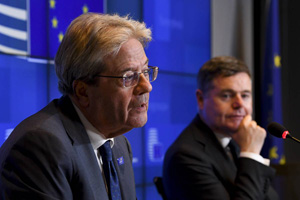Eurogroup recommends Croatia become 20th member of the euro area

date: 17/06/2022
See also: Eurogroup, 16 June 2022
They decided to recommend that Croatia become the 20th member of the euro area. Ministers also discussed the fourteenth enhanced surveillance report on Greece, welcoming the assessment by European institutions that the necessary conditions are in place to confirm the release of the seventh tranche of policy-contingent debt measures, worth €748 million. The Eurogroup welcomed the Commission’s intention not to extend enhanced surveillance after its expiration on 20 August 2022, given the successful delivery of the bulk of Greece’s policy commitments. In other business, the Eurogroup was briefed by the Commission and the ECB on the main findings of the post-programme surveillance reports on Cyprus, Portugal, Ireland and Spain; adopted its work programme for the second half of 2022; received a presentation on the policy priorities of the new Slovenian government; and was briefed by the ECB on the latest monetary policy decisions of the Governing Council. Meeting in inclusive format, ministers discussed developments concerning the Banking Union, and adopted a statement on the future of the Banking Union. They also prepared for the Euro Summit that will take place on 24 June 2022.
During a meeting of the Economic and Financial Affairs Council (ECOFIN) on 17 June, ministers adopted a recommendation which will enable Croatia to become a member of the euro area, agreed the country-specific recommendations on the Member States' National Reform Programmes of 2022 and the Council opinions on the updated stability or convergence programmes, and took stock of the implementation of the Recovery and Resilience Facility (RRF).
